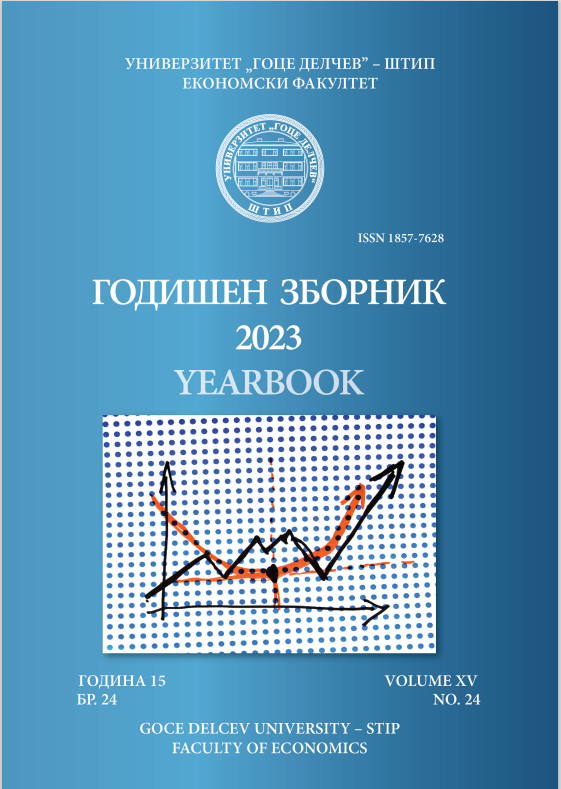ВЛИЈAНИЕ НA МЕНАЏМЕНТОТ НА ПЕРФОРМАНСИ ВРЗ ЕФИКАСНОСТА НА ОРГАНИЗАЦИИТЕ ОД ПРИВАТНИОТ СЕКТОР
Keywords:
менаџмент, перформанси, ефикасност, цели, следење и мерење, менаџмент на перформанси, ефикасност на организациитеAbstract
Во овој труд, се зборува за влијaние кое го има менаџментот на перформанси врз ефикасноста на организациите од приватниот сектор. Имено, главната цел е да се разбере дека во денешни рамки, ефикасноста на организациите е од исклучителна важност за нивниот раст и развој, како и за нивниот опстанок, а притоа, имајќи го предвид фактот дека не постојат универзални критериуми за ефикасност кои одговараат за секоја организација. Колку попрецизно може да се одредени целта на претпријатието, толку попрецизно може да се одреди и степенот на реализација на целта. Менаџерите влијаејќи на целите на претпријатието ги одредуваат и можните критериуми за мерење на успешноста на претпријатието. Постојат три фактори кои одредуваат што може претпријатието, а што не може: неговите извори, неговите процеси и неговите вредности.

